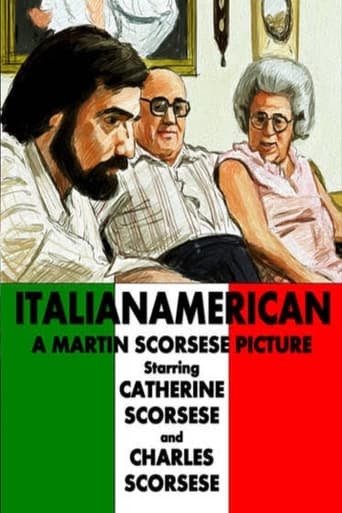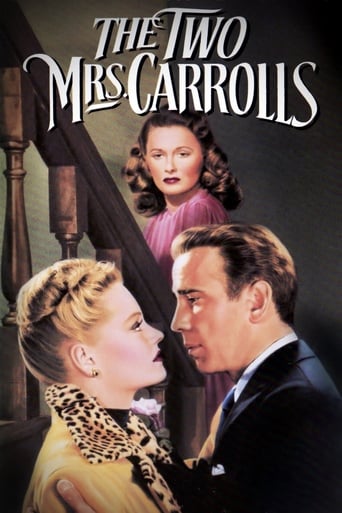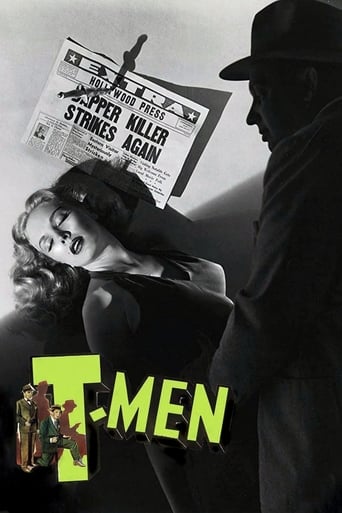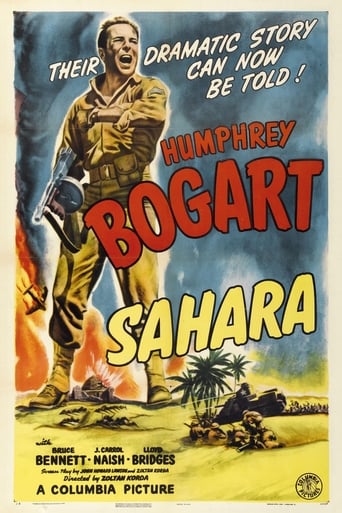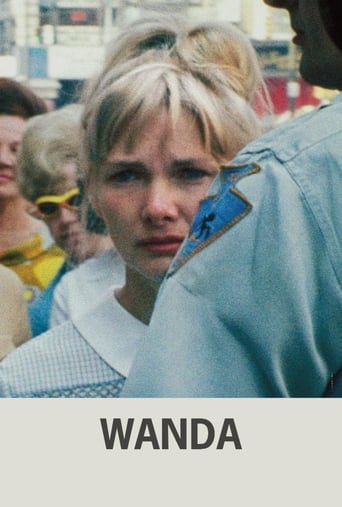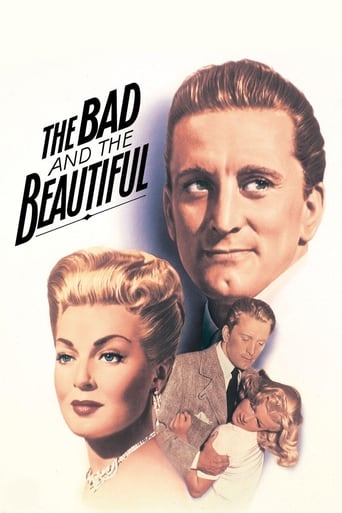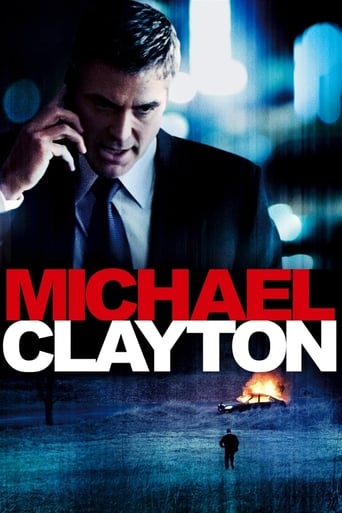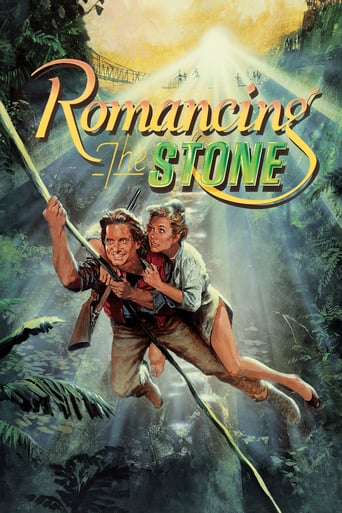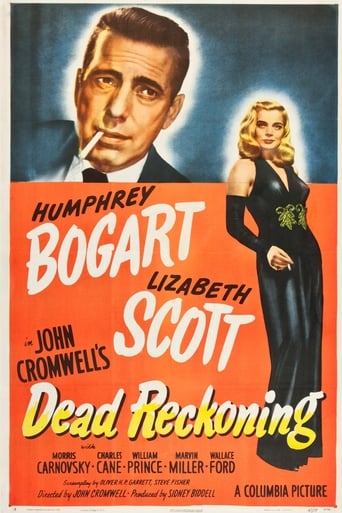


Dead Reckoning
Sergeant Johnny Drake runs away rather than receive the Medal of Honor, so his buddy Captain 'Rip' Murdock gets permission to investigate, and love and death soon follow.
-
- Cast:
- Humphrey Bogart , Lizabeth Scott , Morris Carnovsky , Charles Cane , William Prince , Marvin Miller , Wallace Ford


Similar titles




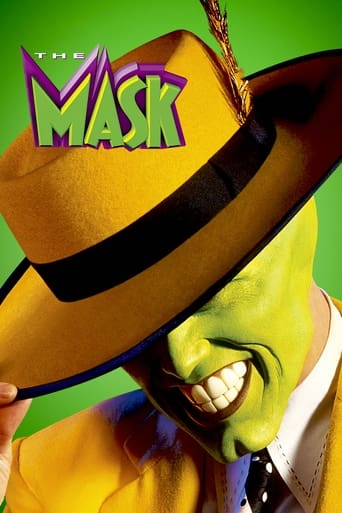
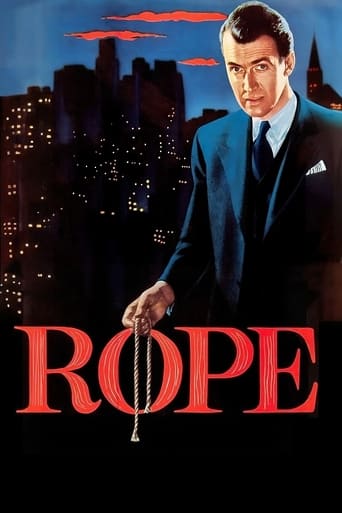
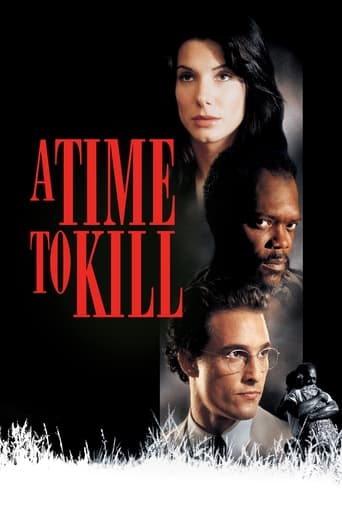
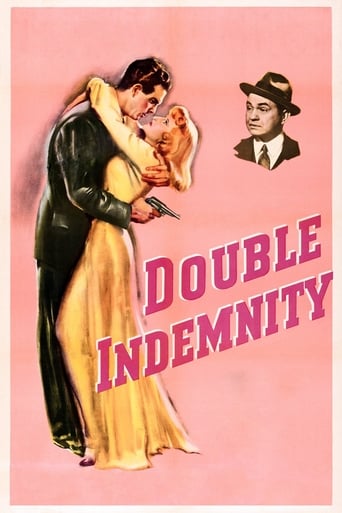
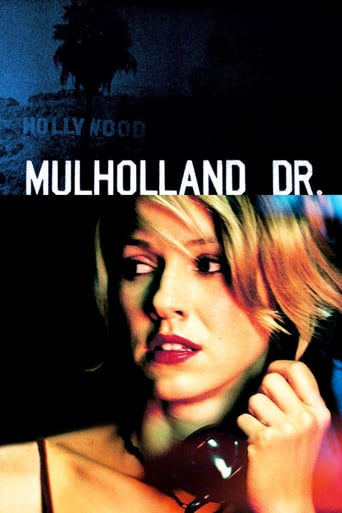
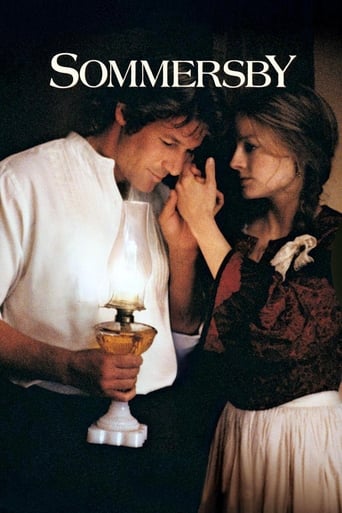
Reviews
Sadly Over-hyped
Although it has its amusing moments, in eneral the plot does not convince.
There are better movies of two hours length. I loved the actress'performance.
This is a gorgeous movie made by a gorgeous spirit.
This is the film in which Lizabeth Scott probably sizzles the most, and it may be her finest performance. She plays a femme fatale who oscillates between being good and being bad with the regularity of a sine wave. One moment she is looking at Humphrey Bogart with the fragility and devotion of a child, and the next she is pulling a gun. As Bogart says in this film, he doesn't trust women, and they should just 'concentrate on being beautiful'. The direction by John Cromwell is superb, and this is one of his best films ever. The film does not have the psychological and emotional profundity of IN A LONELY PLACE (1950, see my review), which Bogart made three years later with Gloria Grahame under Nicholas Ray's direction. But then it is not that kind of story, it is more of a mystery thriller. The screenplay jointly written by Oliver H. P. Garrett and Steve Fisher is truly brilliant, with crisp and witty lines, fast-paced dialogue, and an ingenious construction whereby verbal asides and small details come back into the story meaningfully at a later stage. That script was truly worked over many times and refined like caster sugar, and it has an impeccable sheen. Morris Carnovsky and Marvin Miller between them, as the two baddies, cover just about every base in criminality. The story is one which was bound to resonate with audiences at the time, because it concerns two wartime buddies from the paratroopers returning to America to receive medals for heroism. But, as happens in all such film noir movies, they return home to trouble and a void. As they all discover quickly: 'things have changed'. Lizabeth Scott as the dream girl who kept Bogart's buddy going with memories through the War, has one reunion with him and soon he is dead. This is not looking good, and Bogart decides to investigate. He too falls for Scott, whose siren charms prove irresistible, no matter how hard he tries to remain hard-boiled. There are many twists and turns. Did she or didn't she? Is she or isn't she? Who really did what to whom and why? Where does all the guilt really lie, and what guilt is that guilt anyway? I cannot reveal the ending, but what I can say is that the final shot in the film is a true stroke of genius. They don't write 'em or make 'em like this any more.
"To Have and Have Not" was a déjà-vu of "Casablanca" with a novelty though, and not the least, it had Lauren Bacall in her first starring role. And she didn't just steal Bogart's thunder; she stole his heart too, revealing herself to be the perfect match for Bogie, in every meaning of the word and both on the screen and in real-life. The genuinely growing chemistry between them during the film was enough to cement the film's legend."The Big Sleep" was a déjà-vu of "The Maltese Falcon" and while it didn't have its colorful supporting cast (no Sydney Greenstreet, Peter Lorre or Mary Astor) it did delightfully on the female casting department. Besides, as a Rubik-cube of plot complexity with one double-crossing, two lies and three false tracks by inches of celluloid that it was, it still had Bacall all the way. As long as she and Bogart ended up embracing, it was worth its ticket's price, the pop-corn box and the little spot in Hollywood's firmament.Where am I going at with all these comparisons?"Dead Reckoning" suffers from the same déjà-vu syndrome but without any redeeming quality. It only exists on the basis that the stuff film-noir was made on already worked, that all it took was to place Bogart in his tough-guy routine and let him go through it. Well, as much as I admire Bogart, he never did without partners, lovers or fitting antagonists. Here, he carries the film alone, and while it's always a pleasure to watch him as his typical lone rider with a soft spot for a female outcast, there has to be something new we remember the film from. Take "Dark Passage" for instance, it had Bogart and Bacall, it was far from being a masterpiece, but it still had that Hitchcockian vibe sweating out of each frame, it had Agnes Moorehead and the memorable fact that Bogart's face isn't seen for two thirds of the movie. This is where "Dead Reckoning" fails, it has everything to satisfy its audience, except the most important one: something to remember the film for. Granted its contrived plot was easier to follow than "The Big Sleep" but the investigation didn't have that punch-and-guts dynamite style, these brief flirtatious moments (like that slutty sister or that nymphomaniac librarian), it didn't have a sidekick, some comic-relief to drown our bitterness on, it had only Bogart and Lizabeth Scott. But while we care for Bogart, we never really care for Lizabeth Scott, who seems like a poor man's Lauren Bacall. This is not to dismiss her talent or anything, she could pass as a fitting love interest to Bogie and I loved that beatnik fashion she was dressed in, in the last act, but there's an obviously intended physical resemblance to Babe, and it's so blatant it is distracting, you can't help but making comparisons : same blonde hair, same facial features, same husky voice although I hated her accent which made her sound like Kaa the Python. Sssssseeee what I mean? And the director John Cromwell didn't pull much effort to let her exist on another basis than being a Lauren Bacall's second choice.Take the 1950 film, "In a Lonely Place", there was something that Gloria Grahame brought to the screen that only belonged to her, not even to Bacall, she had that dignified look but average beauty, that sadness and melancholy graved in her face, that lack of glamor and superficiality that could make her fall in love with a loner like Dixon Steele. But in "Dead Reckoning", Scott never quite makes it as a potential love interest for Bogie, because she's never given the choice. When she's not Bacall, she becomes Mary Astor-like villain inspiring a "you're good" rip-off (among many other stolen lines) but the tears in her eyes are as artificial as that goddamn rain scene at the end of the confession.Speaking of it, what was the point of even making it a confession when the listener, a priest has nothing else to do than watching the hero disappear before raindrops start falling as if sky was urinating (the lousy effect of a garden hose) Nothing really makes senses from the beginning. Bogart investigates over his army-buddy's disappearance, but is the paratrooper or the taxi-cab owner who does it, in both cases, where did he achieve his Private-eye skills, why not making it a PI movie from the beginning? Never mind, Bogart is good, even very good, but is that enough when the supporting cast doesn't hold a candle to the heavyweights I mentioned, not even Elisha Cook Jr.Morris Carnovsky as the mastermind Martinelli and Marvin Miller as Krause, deliver remarkable performances and it would be unfair to blame them, but I couldn't buy baby-faced Krause as a thug with sociopath impulses, if one thing, it was Bogart who seemed to bully him and we're almost glad when he gets it and Martinelli was just severely underused. But that wasn't even the problem; it's just that the casting didn't help elevating the movie higher than its timid level of entertainment. And I know there's something wrong in the film when I start talking about other movies, and seems like I broke a new record with this one.Well, to conclude on a positive note, at least, there is Bogie, and he's good, but the rest is just an ersatz of all his previous films without something new to hang our hopes on.
As I read others more positive reviews, I ask, "Was I watching the same movie". This is rehashed Noir complete with stereotyped dialog, grainy stock and uplighting ad nauseam. Only its Bogey! Albeit at the midpoint of his career...so this could have been a much, much better film. However the acting is terribly wooden. Bogey looks tired and uninspired and there is very little chemistry between he and the "femme fatale" Lizbeth Scott, who was ostensibly cast as a Bacall look alike. (husky voice and all). The set was supposed to be tropical, but was shot in NYC. The green screen beach scenes looked fake. I could go on and on. One parting comment, though, regarding the incredibly sexist scene where "Rip" explains his philosophy on women to Coral..."Woman should be shrunk down and kept in a man's pocket...and taken out, blown up, and be there for him looking pretty." (not exact quote, by you get the picture) Gag me with a maggot. The ending was, perhaps, the worst death scene I have seen. After a horrendous car crash, (head on with a tree at 70mph)Rip has a broken arm and Coral (on her death bed), with a designer head wrap and no bruising, closes her lovely eyes and parachutes off to the great beyond. Pathetic. The movie works as a reference point for Bogey film buffs and little else. -Jim
Director John Cromwell's film noir thriller "Dead Reckoning" is the last great tough-guy movie that Humphrey Bogart starred in after he left Warner Brothers and went to Columbia Pictures for the last phase of his career. "Dead Reckoning" contains an oblique dialogue reference to the classic John Huston detective film "The Maltese Falcon." Bogart is cast as a U.S. Army paratrooper, Captain Rip Murdock, and his buddy, Sergeant Johnny Drake (William Prince of "The Gauntlet"), is slated to receive the Congressional Medal of Honor, so the military put both of them on a plane home. When Johnny learns that he is going to be awarded the medal, he skips out and Murdock lights out after him without any military help. You see, Murdock wants to keep it a low-profile operation.The bulk of the story occurs in a drowsy Southern town where Drake took the blame for killing a wealthy man. Johnny's girlfriend Coral (the beautiful Lizabeth Scott of "Red Mountain") is involved in the murder and Johnny wants to protect her so he scrambles out of town, enlists in the military and heads off to war-torn Europe where he becomes fast friends with Captain Murdock. Bogart's Captain Murdock tangles with some tough cookies, local mobsters who run an illegal as well as fixed roulette wheel and are up to their ears in corruption.They drug, beat up, and frame Bogie for the death of another man who testified in the court. The way that Bogie disposes of the body is rather neat. The story is largely related in flashback as Murdock confides in an Army chaplin in a Catholic church while the local authorities scour the city looking for him. Lizabeth Scott is the sultry siren at the center of everything. Morris Carnovsky is a tough guy who roughs up Bogart in one scene. Splendidly paced by Cromwell, "Dead Reckoning" qualifies as a top-notch, gun-toting nail biter.

